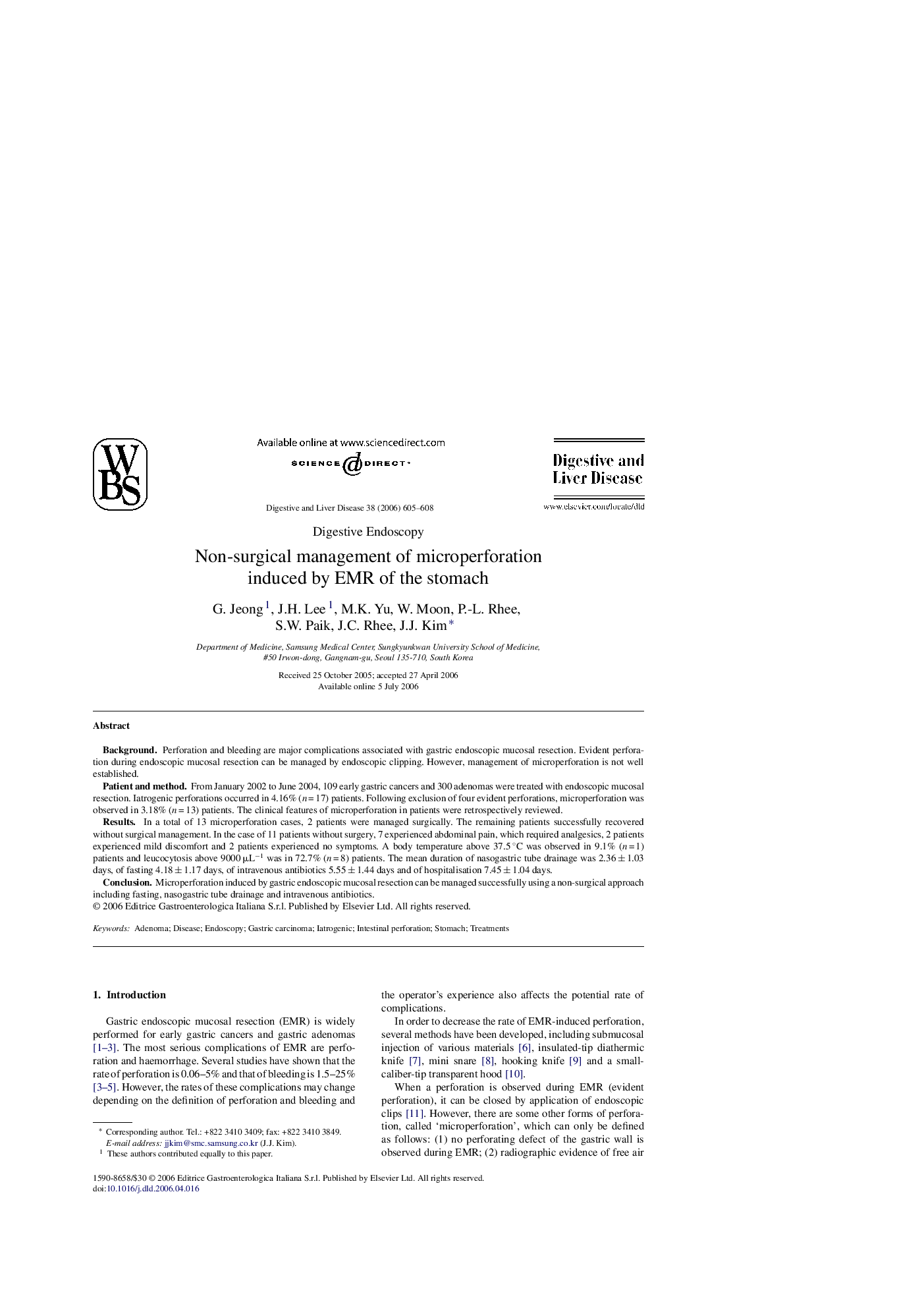| Article ID | Journal | Published Year | Pages | File Type |
|---|---|---|---|---|
| 3266550 | Digestive and Liver Disease | 2006 | 4 Pages |
BackgroundPerforation and bleeding are major complications associated with gastric endoscopic mucosal resection. Evident perforation during endoscopic mucosal resection can be managed by endoscopic clipping. However, management of microperforation is not well established.Patient and methodFrom January 2002 to June 2004, 109 early gastric cancers and 300 adenomas were treated with endoscopic mucosal resection. Iatrogenic perforations occurred in 4.16% (n = 17) patients. Following exclusion of four evident perforations, microperforation was observed in 3.18% (n = 13) patients. The clinical features of microperforation in patients were retrospectively reviewed.ResultsIn a total of 13 microperforation cases, 2 patients were managed surgically. The remaining patients successfully recovered without surgical management. In the case of 11 patients without surgery, 7 experienced abdominal pain, which required analgesics, 2 patients experienced mild discomfort and 2 patients experienced no symptoms. A body temperature above 37.5 °C was observed in 9.1% (n = 1) patients and leucocytosis above 9000 μL−1 was in 72.7% (n = 8) patients. The mean duration of nasogastric tube drainage was 2.36 ± 1.03 days, of fasting 4.18 ± 1.17 days, of intravenous antibiotics 5.55 ± 1.44 days and of hospitalisation 7.45 ± 1.04 days.ConclusionMicroperforation induced by gastric endoscopic mucosal resection can be managed successfully using a non-surgical approach including fasting, nasogastric tube drainage and intravenous antibiotics.
